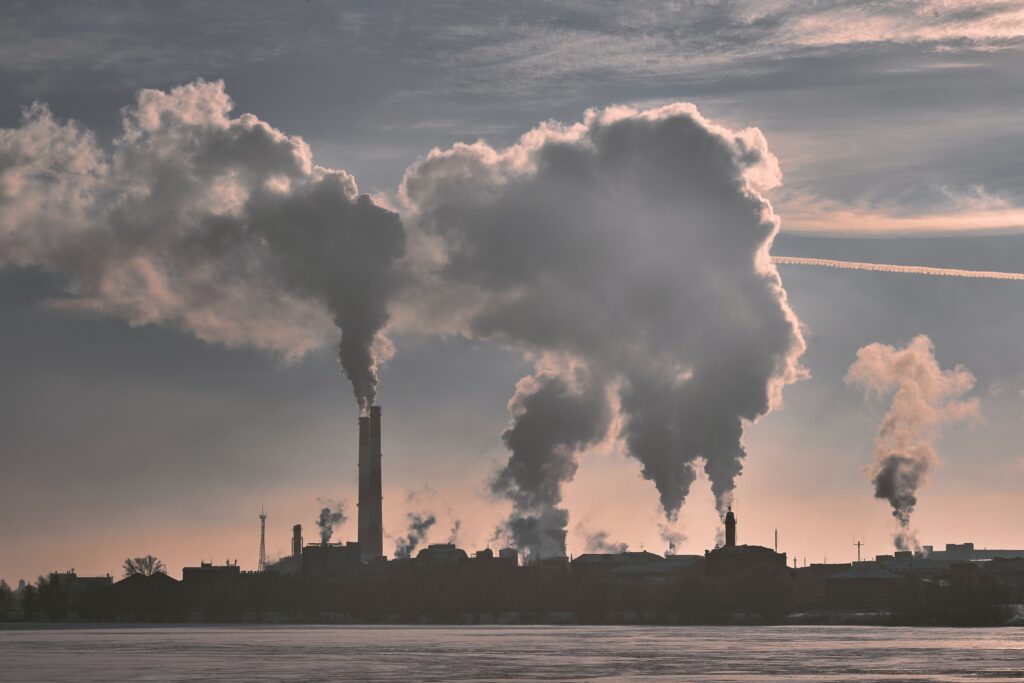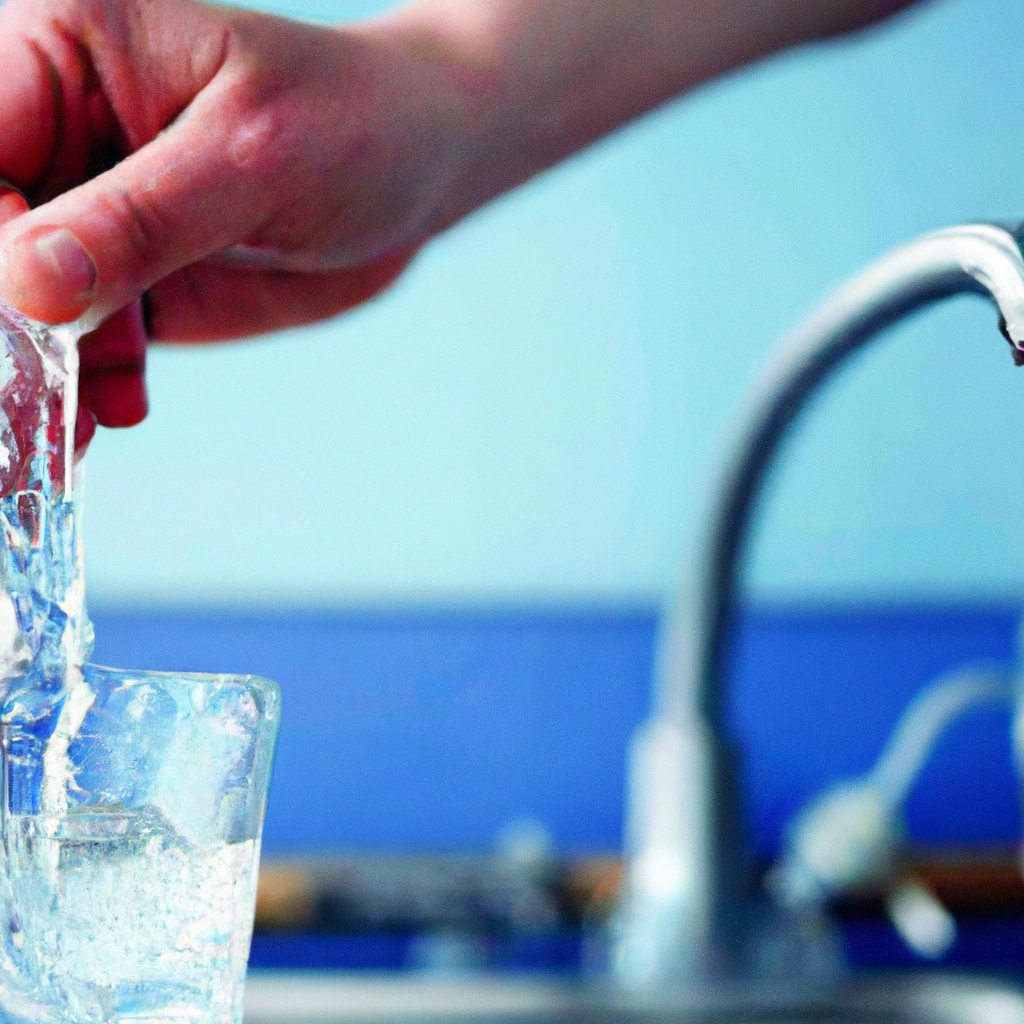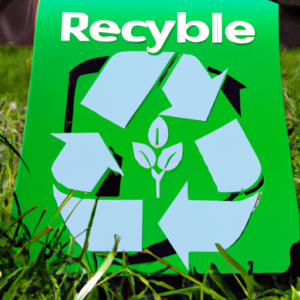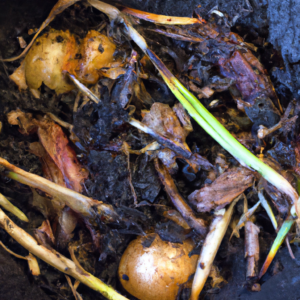“What Are The Health Impacts Of Polluted Water?” This question may seem innocuous at first glance, but its implications are nothing short of profound.
Water, the elixir of life, is a fundamental resource that sustains not only our bodies but also the delicate balance of ecosystems worldwide. Yet, in an age marked by industrialization, urbanization, and environmental challenges, the purity of this precious resource is increasingly under threat.
In this article, we’re going to embark on a journey into the world of contaminated water, exploring the multifaceted ways in which it can impact human health.
It’s a journey that delves into the intricate relationship between water and life itself, a story of risks, consequences, and the urgent need to safeguard our well-being.
So, if you’ve ever wondered about the hidden perils lurking in the depths of polluted water, you’re in the right place.
Join us as we dive headfirst into the swirling currents of this critical issue and uncover the hidden truths behind the health impacts of polluted water.

Check Out Our Top Eco Friendly Product Picks On Amazon Here
Overview of Polluted Water
Definition of Polluted Water
Polluted water refers to water that has been contaminated with harmful pollutants, making it unsafe for human consumption and detrimental to aquatic life. These pollutants can come from various sources, including industrial waste, agricultural runoff, sewage, and improper disposal of chemicals. When water becomes polluted, it poses serious threats to both human health and the environment.
Causes of water pollution
Water pollution can be caused by a variety of factors, each contributing to the degradation of water quality. Industrial activities such as manufacturing and mining release toxic chemicals and heavy metals into water bodies, contaminating the water supply. Agricultural practices, particularly the use of fertilizers and pesticides, contribute to water pollution through runoff, as these substances can seep into rivers and lakes. Inadequate sewage treatment and the improper disposal of waste also play a significant role in polluting water sources.
Common types of water pollutants
There are several common types of water pollutants that contribute to the contamination of freshwater sources. These include:
- Sediments: Erosion and runoff from construction sites, agricultural fields, and deforested areas can introduce sediments into water bodies, clouding the water and negatively impacting aquatic organisms.
- Nutrients: Excessive amounts of nutrients, particularly nitrogen and phosphorus, can enter water sources through agricultural runoff and sewage. These nutrients can lead to excessive algae growth, depleting oxygen and causing harmful algal blooms.
- Pathogens: Sewage, animal waste, and poorly treated wastewater can introduce pathogens such as bacteria, viruses, and parasites into the water, posing a significant risk to human health.
- Chemicals: Industrial activities, including manufacturing processes and the improper disposal of chemicals, contribute to water pollution. Heavy metals, pesticides, and pharmaceuticals are examples of chemicals that contaminate water sources and have harmful effects on both humans and aquatic life.
- Plastic and Other Debris: Improper waste management leads to the accumulation of plastic and other debris in water bodies. These materials, which do not naturally biodegrade, can harm aquatic life through ingestion, entanglement, and disruption of ecosystems.
- Radioactive Substances: Nuclear plants and mining activities can introduce radioactive substances into water sources. These substances pose a significant risk to human health, even in small quantities, and can have long-lasting effects.
Waterborne Diseases Associated with Polluted Water
Introduction to Waterborne Diseases
Waterborne diseases are illnesses that are caused by the consumption of contaminated water. When water is polluted with pathogens, such as bacteria, viruses, and parasites, it becomes a breeding ground for disease-causing microorganisms. These waterborne diseases can lead to severe health problems, especially in communities with inadequate access to clean water and sanitation facilities.
Cholera
Cholera is a waterborne disease caused by the bacterium Vibrio cholerae. It is primarily transmitted through contaminated water or food. Cholera can lead to severe diarrhea, vomiting, and dehydration, and if left untreated, it can be fatal. Outbreaks of cholera often occur in areas with poor sanitation and limited access to clean water.
Dysentery
Dysentery is an inflammatory disorder of the intestines, usually caused by infection with bacteria, parasites, or viruses. Contaminated drinking water is a common source of dysentery. Symptoms include bloody diarrhea, abdominal pain, and fever. In severe cases, dysentery can lead to dehydration and other complications.
Typhoid Fever
Typhoid fever is a bacterial infection caused by Salmonella typhi bacteria. It is typically transmitted through the ingestion of food or water contaminated with fecal matter. Symptoms include a prolonged high fever, headaches, stomach pain, and loss of appetite. Typhoid fever can be life-threatening if not treated promptly.
Hepatitis
Hepatitis is an inflammation of the liver, usually caused by viral infection. Several types of hepatitis viruses can be transmitted through contaminated water, including Hepatitis A and Hepatitis E. Symptoms vary but may include fatigue, jaundice, abdominal pain, and nausea. Hepatitis can lead to chronic liver disease and, in some cases, liver cancer.
Gastroenteritis
Gastroenteritis, often referred to as the stomach flu, is an inflammation of the stomach and intestines, leading to symptoms such as diarrhea, vomiting, abdominal cramps, and fever. It can be caused by various pathogens, including bacteria, viruses, and parasites, which are commonly found in contaminated water and food.
Cryptosporidiosis
Cryptosporidiosis is a parasitic infection caused by the protozoan parasite Cryptosporidium. It is typically contracted through the ingestion of water or food contaminated with the parasite. Symptoms include watery diarrhea, stomach cramps, and dehydration. Cryptosporidiosis can be particularly severe in individuals with weakened immune systems.
Check Out Our Top Eco Friendly Product Picks On Amazon Here
Contaminants in Polluted Water
Heavy Metals
Heavy metals, such as lead, mercury, cadmium, and arsenic, are toxic substances that can contaminate water sources. Industrial activities, mining operations, and improperly disposed electronic waste contribute to the presence of heavy metals in water. These contaminants can cause serious health problems, including organ damage, developmental issues, and neurological disorders.
Pesticides
Pesticides, including herbicides, insecticides, and fungicides, are chemicals used in agriculture to control pests and diseases. However, when these chemicals are not used or disposed of properly, they can contaminate water sources through runoff. Prolonged exposure to pesticides in contaminated water can have detrimental effects on human health, including increased cancer risk, reproductive problems, and neurological disorders.
Chemical Waste
Chemical waste from industrial and manufacturing activities can enter water sources, either through direct discharge or improper disposal. These chemicals include solvents, heavy metals, acids, and alkalis. Exposure to chemical waste in polluted water can lead to a range of health problems, depending on the specific chemicals involved, including respiratory issues, organ damage, and developmental disorders.
Microorganisms
Microorganisms, including bacteria, viruses, and parasites, are a significant source of water pollution. These pathogens can enter water sources through human and animal waste. Ingesting water contaminated with these microorganisms can lead to various waterborne diseases, as discussed earlier.
Plastic and Other Debris
Plastic and other debris, such as litter and waste, accumulate in water bodies and pose a threat to aquatic life. Plastics can break down into microplastics, which are then ingested by fish and other marine organisms, resulting in internal injuries and the transfer of toxins up the food chain. Additionally, the presence of debris can disrupt ecosystems, affect breeding patterns, and destroy habitats.
Radioactive Substances
Water can become contaminated with radioactive substances through nuclear accidents, mining activities, or improper disposal of nuclear waste. Radioactive substances, such as uranium and radon, can have detrimental effects on human health, including an increased risk of cancer, genetic mutations, and organ damage.
Impact on Human Health
Digestive System Disorders
Consuming polluted water can lead to various digestive system disorders. Waterborne pathogens, chemicals, and toxins can irritate the gastrointestinal tract, causing symptoms such as diarrhea, abdominal pain, and nausea. Prolonged exposure to contaminated water can increase the risk of developing chronic gastrointestinal diseases, including inflammatory bowel disease and gastrointestinal cancer.
Respiratory Problems
Certain contaminants in polluted water, such as chemical waste and microbial toxins, can vaporize into the air, leading to respiratory problems when inhaled. People living near polluted water sources or those who consume contaminated water may experience symptoms such as coughing, wheezing, shortness of breath, and increased susceptibility to respiratory infections.
Skin Issues
Contact with polluted water can result in skin issues, such as rashes, itching, and dermatitis. Chemical pollutants, including heavy metals, pesticides, and certain toxins produced by microorganisms, can directly irritate and damage the skin. These skin issues are particularly common among individuals who come into direct contact with polluted water through swimming, bathing, or occupational exposure.
Reproductive Problems
Exposure to certain pollutants found in polluted water can lead to reproductive problems in both men and women. For example, heavy metals like lead and mercury can negatively impact fertility and increase the risk of miscarriage in women. In men, exposure to certain chemicals in polluted water has been linked to decreased sperm quality and fertility.
Neurological Disorders
Certain contaminants present in polluted water, such as heavy metals and organic pollutants, can have neurotoxic effects, affecting the central nervous system. Prolonged exposure to these substances can lead to neurological disorders, including cognitive impairment, developmental delays in children, and an increased risk of neurodegenerative diseases such as Alzheimer’s and Parkinson’s.
Cancer
Exposure to carcinogens in polluted water can significantly increase the risk of developing various types of cancer. Chemical pollutants, such as arsenic and certain pesticides, have been associated with an increased incidence of cancer in individuals exposed to contaminated water sources over a long period. These cancers can affect different organs, including the bladder, liver, and kidneys.
Weakened Immune System
Consuming polluted water, particularly water contaminated with pathogenic microorganisms, can weaken the immune system, making individuals more susceptible to infections and illnesses. Prolonged exposure to contaminated water can lead to a constant burden on the immune system, resulting in a reduced ability to fight off diseases and infections effectively.

Immediate Health Effects of Consuming Polluted Water
Diarrhea
One of the most common immediate health effects of consuming polluted water is diarrhea. Waterborne pathogens, such as bacteria, viruses, and parasites, can cause inflammation and infection in the gastrointestinal tract, leading to frequent loose and watery stools.
Nausea and Vomiting
Ingesting polluted water can often result in nausea and vomiting. These symptoms are commonly caused by toxins produced by certain microorganisms or the presence of chemical pollutants that irritate the stomach.
Abdominal Cramps
Abdominal cramps are a common immediate health effect of consuming polluted water. Irritation to the gastrointestinal tract caused by contaminants in the water can lead to discomfort and spasms in the abdominal area.
Headaches
Headaches can occur as an immediate response to consuming polluted water. Certain contaminants, such as chemicals and high levels of heavy metals, can affect the central nervous system, resulting in headaches and migraines.
Fever
Waterborne infections caused by pathogens present in polluted water can lead to fever. The body’s immune response to these infections may cause an elevation in body temperature as a defense mechanism.
Long-Term Health Effects of Consuming Polluted Water
Chronic Gastrointestinal Diseases
Consistently consuming polluted water can contribute to the development of chronic gastrointestinal diseases. The presence of pathogens, toxins, and chemicals in water can cause long-term damage to the gastrointestinal tract, leading to conditions such as irritable bowel syndrome, Crohn’s disease, and colorectal cancer.
Liver Damage
Exposure to certain contaminants, such as heavy metals, pesticides, and chemical toxins, can lead to liver damage over time. Prolonged consumption of polluted water containing these substances can result in liver inflammation, impaired liver function, and an increased risk of developing liver diseases such as cirrhosis and liver cancer.
Kidney Dysfunction
Certain pollutants present in polluted water can have detrimental effects on kidney function. Heavy metal contamination, in particular, has been linked to kidney damage and the development of chronic kidney disease. Ingesting water contaminated with these substances over a long period can put significant strain on the kidneys, impairing their ability to properly filter and eliminate waste from the body.
Developmental Issues in Children
Children are particularly vulnerable to the health effects of consuming polluted water. The presence of certain contaminants, such as lead and mercury, can disrupt proper growth and development, leading to developmental issues. These can include cognitive impairments, behavioral problems, and delays in physical and mental development.
Hormonal Imbalances
Certain pollutants found in polluted water, such as certain pesticides and chemicals, can disrupt the hormonal balance in the body. Exposure to these substances over time can lead to endocrine disorders, affecting the reproductive system, thyroid function, and overall hormonal regulation.

Effects of Polluted Water on Aquatic Life
Decline in Fish Population
Water pollution has a devastating impact on aquatic life, particularly fish populations. Pollutants such as heavy metals, agricultural runoff, and chemicals can adversely affect fish habitats and reproductive cycles, leading to a decline in fish populations. This, in turn, disrupts the balance of aquatic ecosystems and can lead to the loss of commercially important fish species.
Algae Blooms and Oxygen Depletion
Excessive nutrient pollution from agricultural runoff and sewage can contribute to the growth of harmful algal blooms in water bodies. These blooms can deplete oxygen levels in the water, leading to fish kills and the death of other aquatic organisms that rely on oxygen for survival.
Disruption of Ecosystem
Water pollution can disrupt aquatic ecosystems by altering the balance and composition of species within them. Pollution-induced changes in nutrient levels, temperature, and oxygen availability can lead to the extinction or reduced abundance of certain species. This disruption can have cascading effects on the entire ecosystem, causing imbalances in food chains and the loss of critical ecological functions.
Bioaccumulation of Toxins
Contaminants present in polluted water can accumulate in the tissues of aquatic organisms, a process known as bioaccumulation. This means that toxins can become more concentrated as they move up the food chain, with top predators accumulating the highest levels. When humans consume contaminated fish or other aquatic organisms, they are at risk of ingesting these accumulated toxins, which can pose health risks.
Loss of Biodiversity
Water pollution can result in the loss of biodiversity in aquatic ecosystems. The presence of contaminants can directly harm or kill many species, leading to a decrease in overall diversity. Additionally, the disruption of food chains and habitat destruction caused by pollution can indirectly contribute to the loss of a wide range of species.
Impacts on Local Communities
Limited Access to Clean Water
Polluted water sources can limit the availability of clean and safe drinking water for local communities. This forces individuals to either consume contaminated water or travel long distances to access clean water sources, resulting in increased health risks and reduced quality of life.
Increase in Healthcare Expenditure
Communities affected by polluted water often face increased healthcare expenditure. Waterborne diseases and long-term health issues arising from consuming polluted water require medical treatment, which can impose a significant financial burden on individuals and local healthcare systems.
Loss of Livelihoods
Water pollution can have detrimental effects on local economies and livelihoods, particularly in communities that rely on fishing and other water-based activities. Declining fish populations, as a result of pollution, can adversely affect the income and livelihoods of those dependent on these resources.
Social and Economic Disruptions
Water pollution can lead to social and economic disruptions in affected communities. The health consequences of consuming polluted water can result in increased absenteeism at work or school, reduced productivity, and a decreased ability to participate in social activities. This can ultimately hinder personal development, economic growth, and community resilience.

Vulnerable Groups Affected by Polluted Water
Children
Children, especially infants and young children, are more susceptible to the health effects of consuming polluted water. Their developing immune systems and bodies make them more vulnerable to the pathogens and toxins present in contaminated water. Exposure to polluted water during childhood can have long-lasting impacts on their health and development.
Pregnant Women
Pregnant women face unique risks from consuming polluted water. Contaminants in water can cross the placenta and affect fetal development. Exposure to certain pollutants during pregnancy can lead to complications, including preterm birth, low birth weight, and developmental issues in the child.
Elderly
The elderly are more susceptible to the health effects of polluted water due to their weakened immune systems and pre-existing health conditions. Consuming contaminated water can exacerbate their health issues, leading to more severe symptoms and complications.
Immunocompromised Individuals
Individuals with weakened immune systems, such as those with HIV/AIDS, undergoing chemotherapy, or organ transplant recipients, are at a higher risk of developing severe waterborne infections. Consumption of polluted water can lead to opportunistic infections and an increased burden on their already compromised immune systems.
Low Socioeconomic Communities
Low socioeconomic communities often face a disproportionate burden of water pollution and its health impacts. Limited access to clean water and sanitation facilities, substandard housing conditions, and inadequate healthcare resources contribute to the vulnerability of these communities to the health effects of polluted water.
Conclusion
Polluted water poses significant risks to human health and the environment. The presence of contaminants in water sources can lead to a wide range of waterborne diseases, immediate and long-term health effects, and impacts on both aquatic life and local communities. It is crucial to prioritize the preservation and protection of clean water sources, as access to safe drinking water is a fundamental human right. Efforts should be made at the individual, community, and governmental levels to ensure proper sanitation, waste management, and sustainable practices that promote clean and healthy water for all.




